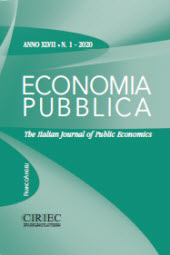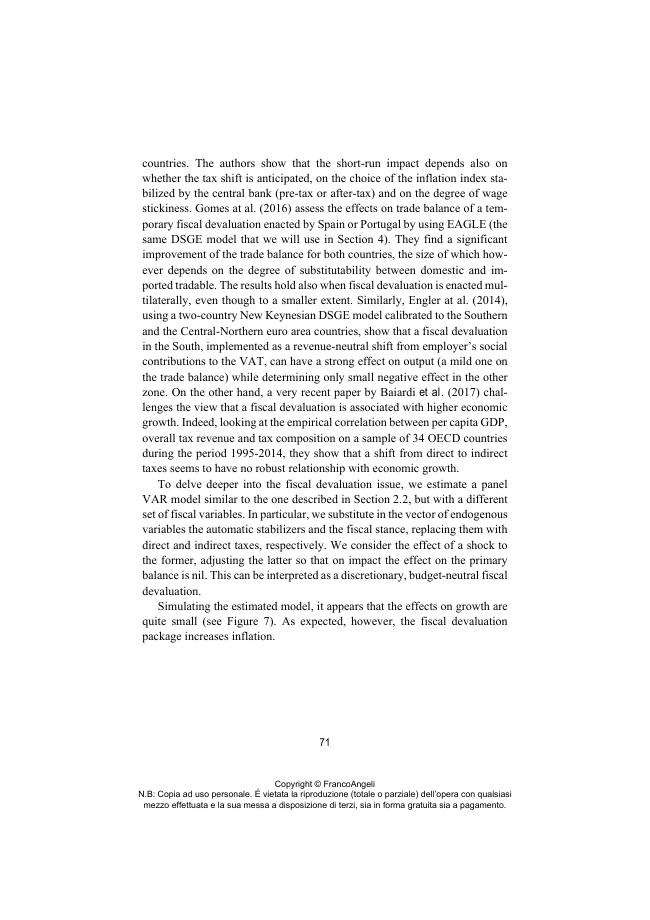Discretionary fiscal policy in the Euro area : pPast, present and future
55-85 p.
During the years of the so-called "Great Moderation", monetary policy and automatic stabilizers were deemed sufficient for counter-cyclical purposes. However, the depth and the length of the recent crisis, together with policy interest rates at the zero lower bound, induced a more positive re-assessment of a countercyclical fiscal stance, especially in the euro area. Against this background, we look at discretionary fiscal policy in the euro area from three different perspectives. First, we provide evidence that the discretionary fiscal policy in euro area countries has been mostly acyclical even if our estimates suggest that it could have been useful, particularly during the crisis. Second, focusing on the short-run - i.e. taking as given the economic and institutional constraints that currently make a significant fiscal expansion quite unrealistic in Europe - we discuss some budget-neutral proposals aimed at fostering economic growth.
Finally, taking a more forward-looking perspective, we discuss the issue of the appropriate fiscal stance for the euro area as a whole, and argue that the advantages of having a coordinated approach (e.g. through a fiscal capacity at the central level) can be substantial. [Publisher's text].
Fa parte di
Economia pubblica : XLVII, 1, 2020-
Articoli dello stesso fascicolo (disponibili singolarmente)
-
Informazioni
Codice DOI: 10.3280/EP2020-001002
ISSN: 1972-5566
PAROLE CHIAVE
- Discretionary fiscal policy, automatic stabilizers, European Monetary Union



